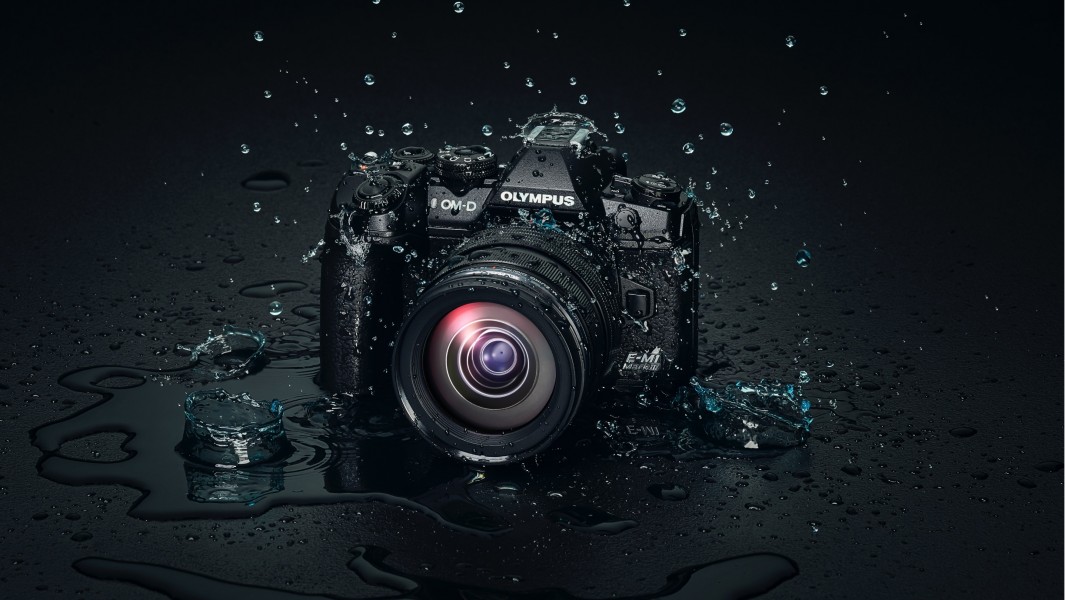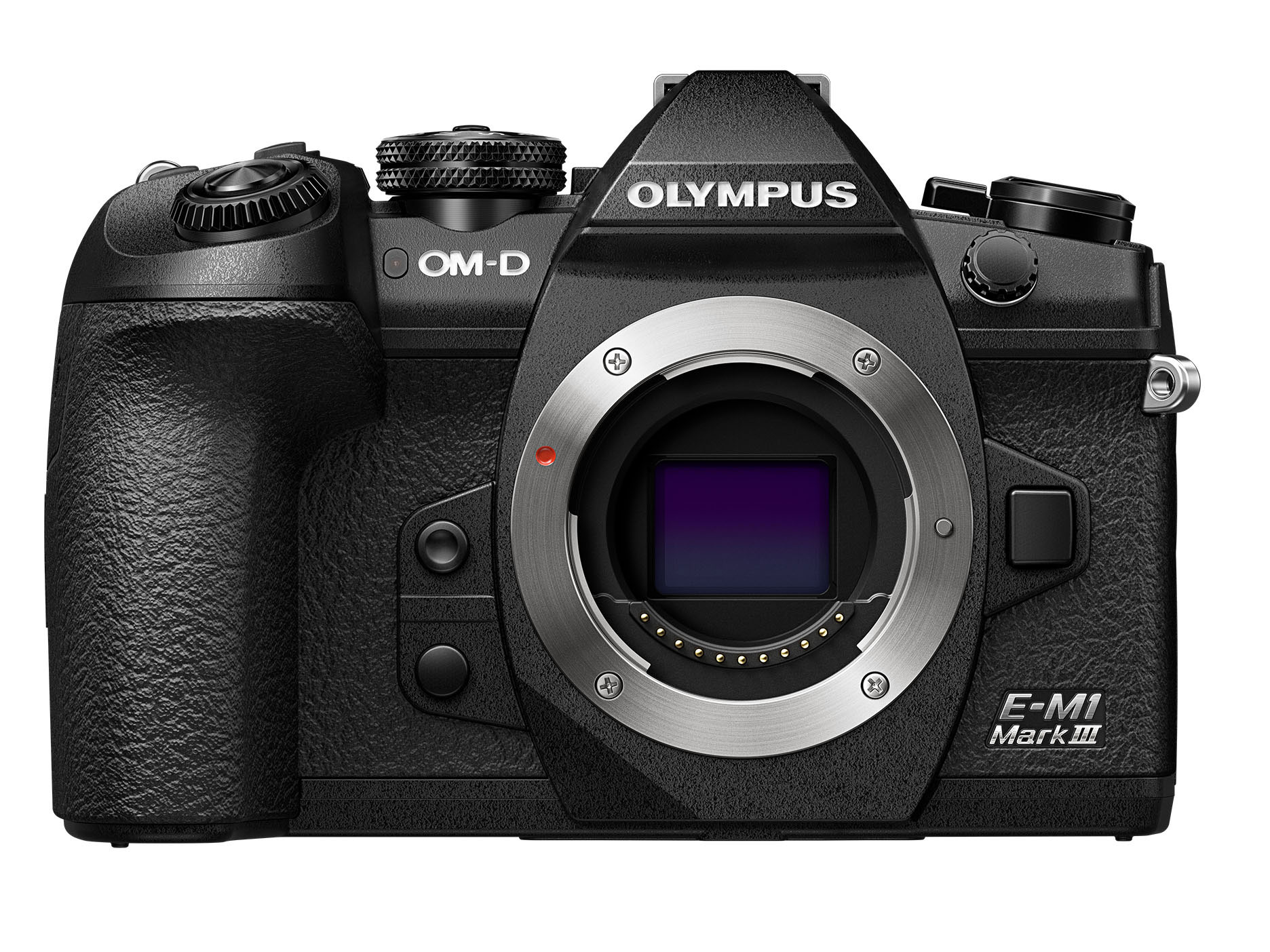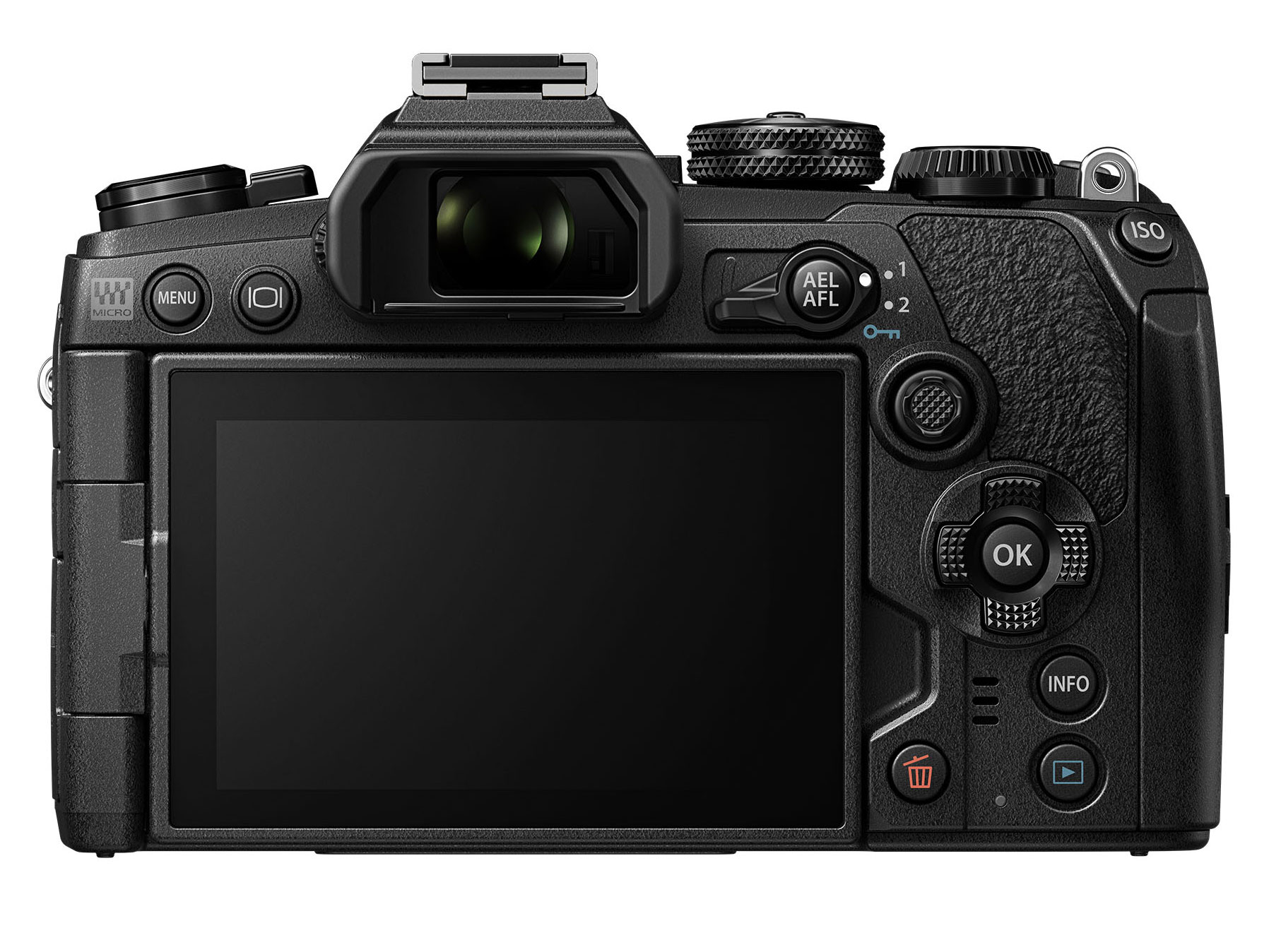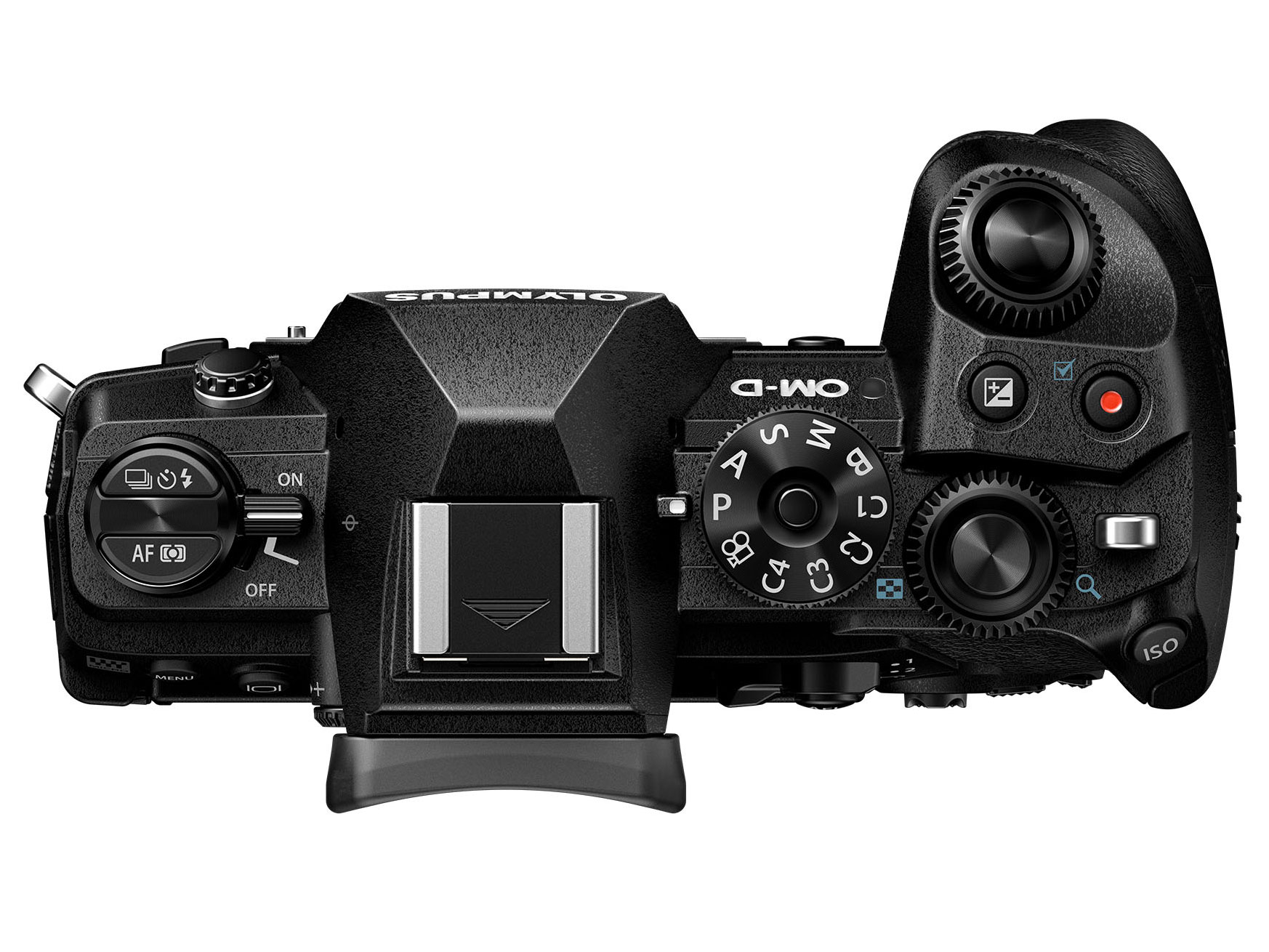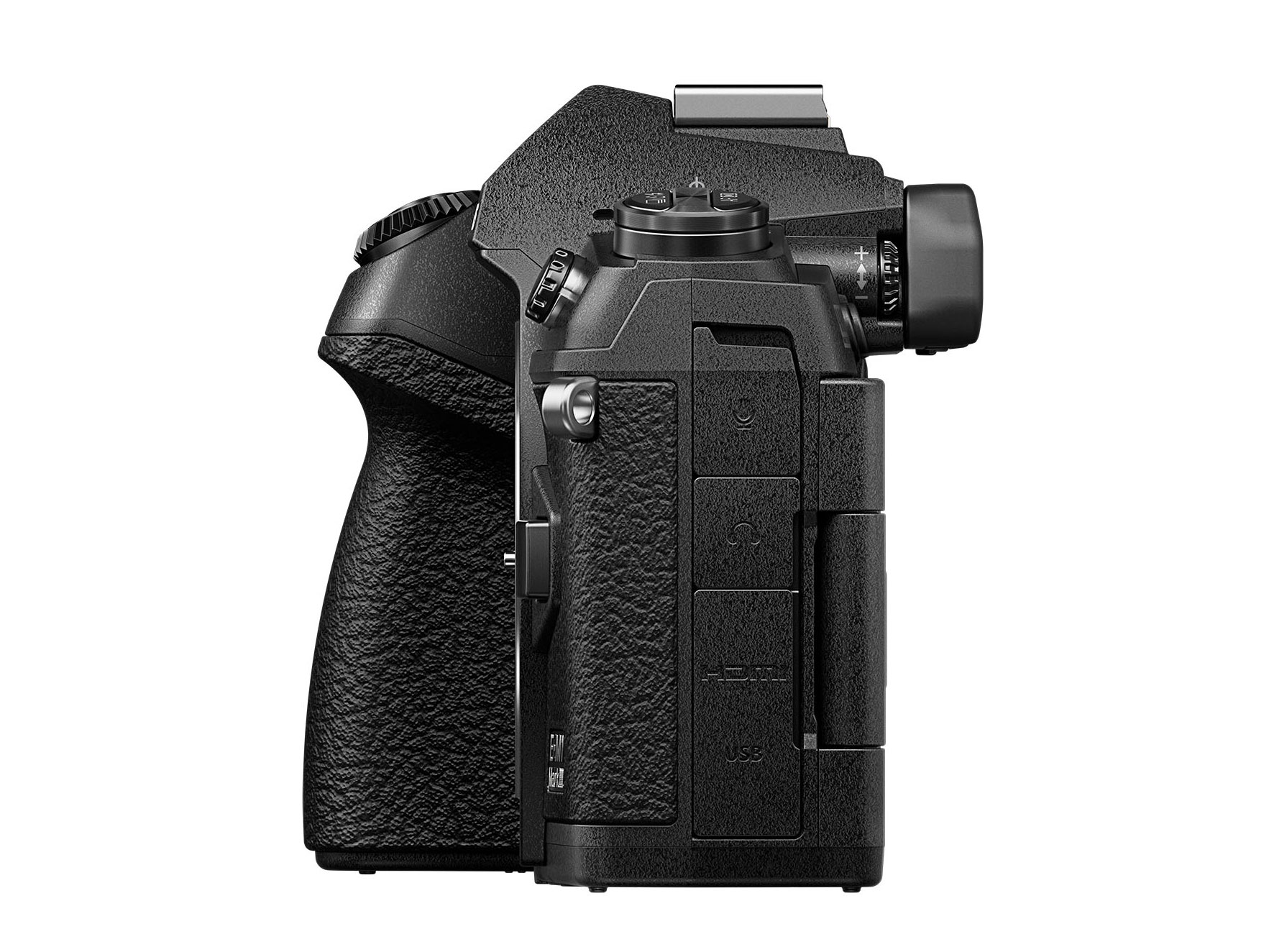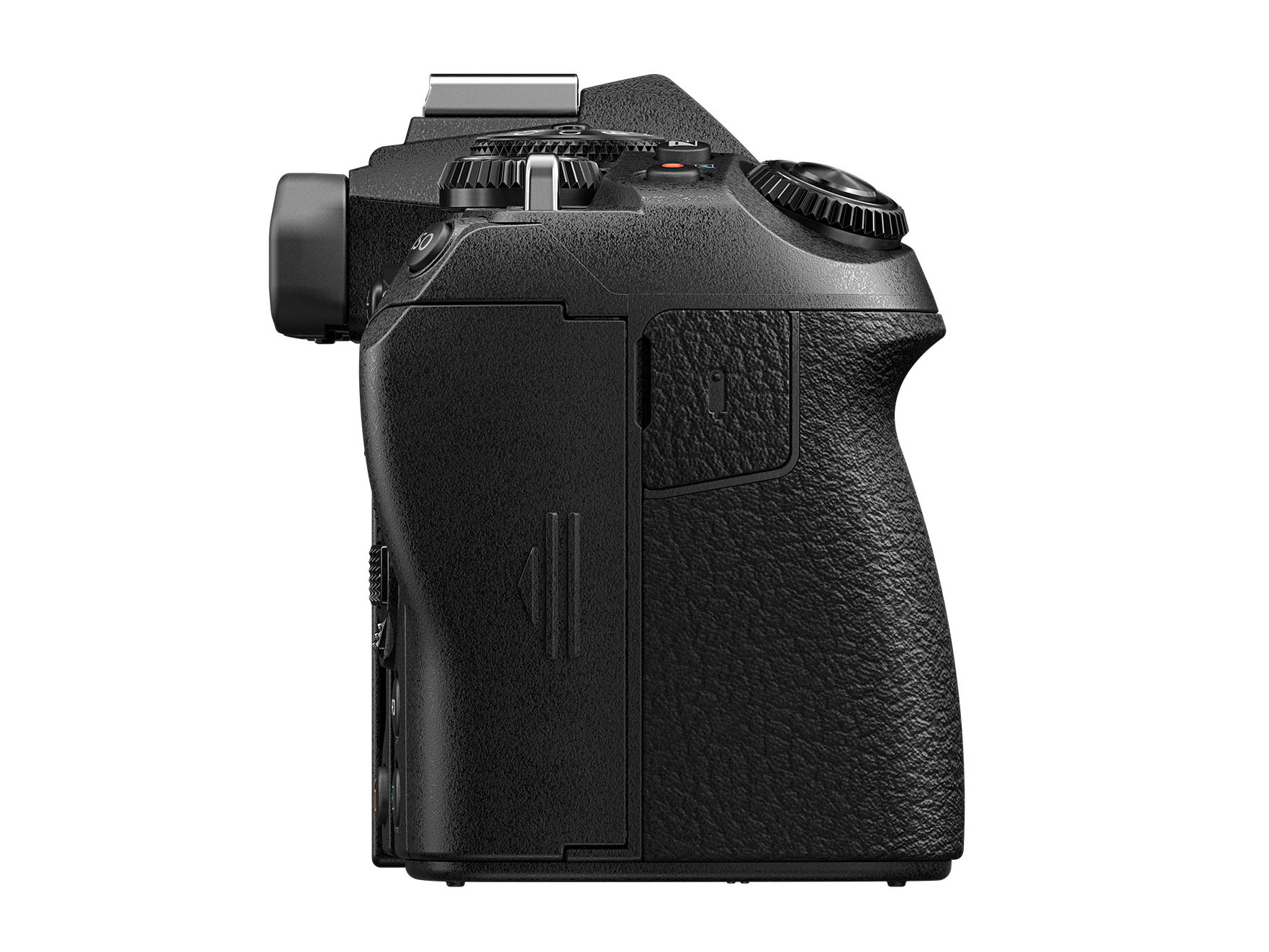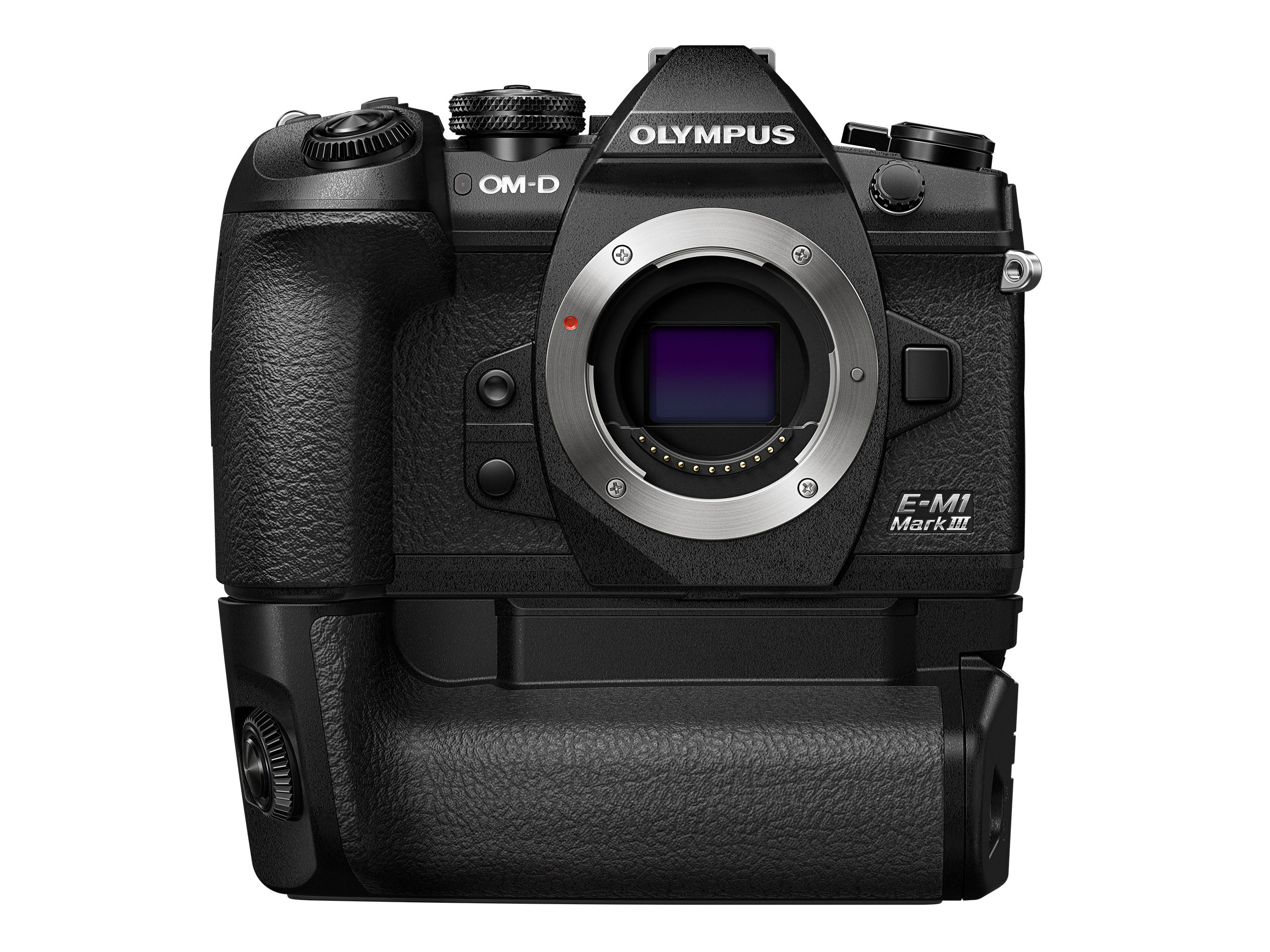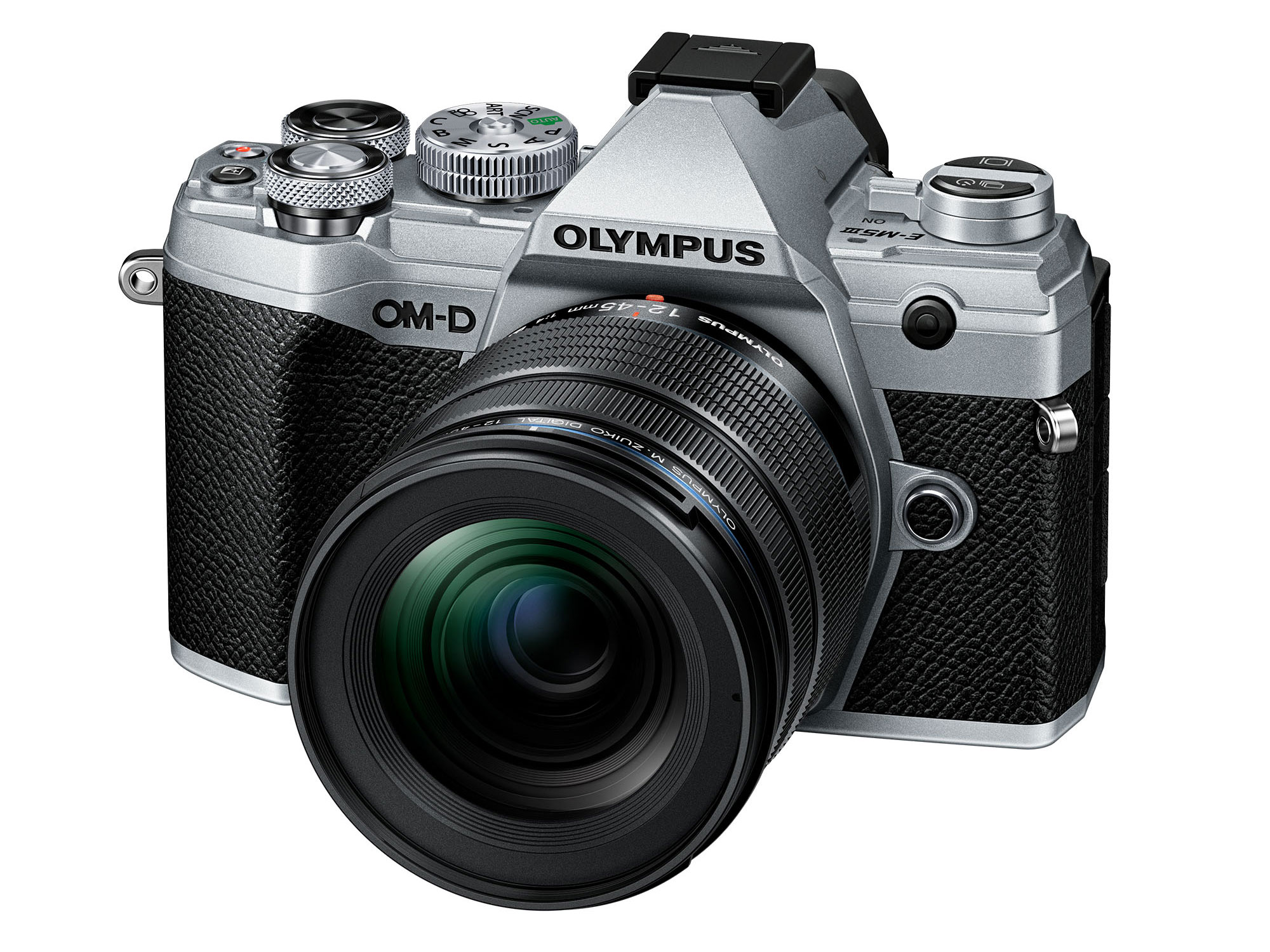The Newly Announced Olympus OM-D E-M1 Mark III Brings a Lot of Innovations Into a Compact Body
Olympus debuts the OM-D E-M1 Mark III, scheduled to go on sale on February 24, 2020.
The Olympus OM-D E-M1 Mark III is a professional model built for superior mobility. This professional interchangeable lens camera conforms to the Micro Four Thirds® System standard. It comes equipped with a new image-processing engine, TruePic™ IX, enabling features such as 50MP Handheld High-Res Shot. Combined with the high image quality of M.Zuiko® Digital lenses, this system fulfills the needs of professional photographers in any field, all in a compact, lightweight dustproof, splashproof, freezeproof magnesium alloy body for a peace of mind when shooting in harsh environments.
This reliable, compact and lightweight body offer the world’s most effective 7.5 shutter speed steps of compensation. The OM-D E-M1 Mark III is also equipped with a 121-point all cross-type On-chip Phase Detection AF sensor for high-precision focusing. Starry Sky AF delivers revolutionary autofocus performance for astrophotography, and the Advanced Face / Eye Priority AF tracks and ensures the subject’s eye is continuously in focus, resulting in a crisp, clear portrait. This model is also equipped with versatile features that were popular on the Olympus OM-D E-M1X, such as 50MP Handheld High Res Shot, Live ND, Pro Capture mode, and handheld 4K video, thanks to its 5-axis In-Body Image Stabilization, designed to meet the demands of the professional photographer.
By synchronizing the in-lens image stabilization of supported lenses with the in-body 5-axis image stabilization, this model achieves the world’s best 7.5 shutter speed steps of compensation with 5-axis sync IS. Powerful image stabilization enables shooting handheld in dark locations and during super-telephoto photography for outstanding freedom in various scenarios without the need for a tripod. In-body image stabilization ensures image stabilization with all attached lenses, up to 7.0 shutter speed steps of compensation performance.
With the new image-processing engine, TruePic IX, combined with its 20.4 Megapixel Live MOS sensor, the world’s most effective 7.5 shutter speed steps of compensation, and high-resolution M.Zuiko Digital lenses deliver minimal noise even at high-sensitivity settings. This model boasts top-class image quality in the interchangeable lens camera class with minimal distortion to the edges of the shot. Improved AF algorithms and high resolution, high-speed performance allow for features such as Handheld High Res Shot, Live ND, Starry Sky AF and improved face/eye priority AF.
50MP Handheld High Res Shot makes it possible to capture high-resolution images without the need for a tripod. This feature makes use of the minimal movement occurring between each of the 16 shots to generate a single 50 Megapixel high-resolution photo. This feature is particularly useful for capturing high-resolution shots in locations where it is impossible to use a tripod. Tripod High Res Shot is also available for recording ultra-high-resolution approximately 80 Megapixel equivalent JPEG images, great for suppressing movement in the merged shot, such as a rippling surface of water or leaves shaking in the wind.
Live ND, which is highly regarded on the OM-D E-M1X, is also included in this model, creating a slow shutter effect without the need for a physical ND filter. This feature virtually extends the exposure time and allows the capture of images with the appearance of slow shutter speed by merging multiple exposures together. Users can select the effect level from ND2 (one step) to ND32 (5 steps), and view the slow shutter effects in the viewfinder before capturing, eliminating the need to change lenses or optical ND filters.
The OM-D E-M1 Mark III body is the foundation to meet photographers’ need for portability and reliability. Add Olympus M.Zuiko Digital PRO lenses for the an unrivaled compact and lightweight system, maintaining the best balance of portability and image quality resulting in performance required and expected by professionals.
The magnesium alloy body of the OM-D E-M1 Mark III features advanced weatherproof construction, resulting in dustproof, splashproof, and freezeproof performance. When paired with a dustproof and splashproof M.Zuiko Digital lens, users can enjoy shooting in the harshest condition without ever worrying about weather or location.
Avoid extra retouching due to dirt and dust on the sensor. The OM-D E-M1 Mark III is equipped with an industry-leading dust reduction system. The SSWF (Super Sonic Wave Filter) vibrates the image sensor at a frequency of 30,000 times per second to shake off dust and dirt. The new dust resistant coating recently introduced on the OM-D E-M1X is also used on this model, making it less likely for dust and dirt to stick to the image sensor, reducing spots in images by 90%.
The Lithium-ion Battery BLH-1 can be fully charged in as little as two hours when charged in the camera via a USB-C PD (Power Delivery) compatible charger of up to 100W. It is also possible to power the camera via a portable USB-C PD power bank or battery pack allowing the photographer to shoot for long durations, especially convenient for astrophotography or photographing in cold locations.
The OM-D E-M1 Mark III is equipped with a long-life shutter unit rated for 400,000 actuations7. It offers a high level of reliability that even professional photographers who constantly use the shutter can feel comfortable with.
This camera is equipped with a 121-point all cross-type On-chip Phase Detection AF sensor for tracking subjects across a wide range quickly and accurately. AF information from recorded images is also used even during sequential shooting, more easily tracking subjects that move unpredictably. It offers 75% vertical coverage and 80% horizontal coverage of the screen for a wide focusing area. Paired with the advanced AF algorithm, this feature can continually focus on fast-moving subjects with a high degree of precision. Unlike DSLR cameras, there is no degradation in AF precision when using a fast lens. The OM-D E-M1 Mark III offers high-precision focusing that can sufficiently bring out the capabilities even of large-diameter lenses such as those with a maximum aperture of F1.2. AF/AE tracking is possible at a maximum of 18 fps high-speed sequential shooting while maintaining the full pixel count of 20.4Megapixels. The subject can also be checked in the viewfinder during high-speed sequential shooting for accurate tracking. Stunning 60 fps shooting performance capture split-second moments in high resolution that the human eye cannot detect utilizing AF/AE lock sequential shooting.
A multi-selector joystick makes it possible to quickly shift AF areas with your thumb while looking through the viewfinder. Since users can move the AF areas with the multi-selector even during sequential shooting, it is possible to accurately focus even on subjects that move erratically. The AF target loop setting is also added, which users can select either stops the AF target at the edge of the screen or moves it to the opposite edge.
Pro Capture mode makes it possible to record scenes that are difficult to capture due to time lag in the subjects’ reactions or camera operation time lag. Recording begins upon the half shutter release, capturing up to 35 frames retroactively from the point of the full shutter release. Because there is no blackout during shooting, it is possible to keep an eye on subject movement while pressing the shutter button. RAW shooting is also supported. Pro Capture makes it possible to record once-in-a-lifetime shots that you might otherwise miss due to the time lag between people’s reaction and camera operating time lag.
Starry Sky AF, which is new for the OM-D E-M1 Mark III, is a feature that will revolutionize the world of astrophotography. In the past, photographers have traditionally relied on manual focusing. A new algorithm was developed to offer accurate focusing even on the tiniest stars shining in the night sky, enabling ultra-high-precision autofocusing that has been admired even among professional astrophotographers. There are two modes in Starry Sky AF. Speed Priority mode (default setting), which prioritizes focusing speed and complete AF operations in a short period of time. Thanks to the powerful image stabilization, this feature makes handheld astrophotography possible using a wide-angle lens. Accuracy Priority uses a fine-tuned focus scan and is effective for shooting specific stars with telephoto lenses.
Thanks in part to the new TruePic IX image processing engine, Face / Eye Priority AF, which automatically detects and focuses on people’s faces and eyes, is now more advanced, dramatically improving both detection accuracy and tracking performance by offering higher processing capabilities and improved AF algorithms, keeping stable focusing on a subject even in the scenes where face detection was difficult in the past, such as sides of faces. It is also now possible to use either the buttons or touch operations to select faces when shooting still images or videos, and detection on or off can be changed with the touch of a single button.
The OM-D E-M1 Mark III offers a variety of AF target offerings. AF Target Modes allows the user to select the best-suited AF target, based on the subject or its movement. The OM-D E-M1 Mark III includes 6 types of AF target modes; Single, Group 5-point, Group 9-point, Group 25-point, 121-point and small AF. Custom AF Target Modes allows the user to customize the AF target area from 121 points to suit the behavior of the subject. You can select from 11 vertical or horizontal points or an odd number of individual points to create your custom AF area. The Orientation Linked AF Targets customization allows the user to individually set the AF target and AF area position for vertical and horizontal shooting.
Live Composite is included with the OM-D E-M1 Mark III. This feature makes it possible to check exposure status in Live View in real-time. Live Composite also supports up to six hours of shooting. With B mode added to the shooting mode dial, Live Composite, Live Bulb, and Live Time are now easier to access and configure. Record photos in focus all the way from the foreground to the background. Focus Stacking automatically creates a composite in-body from up to 15 frames. Focus Bracketing allows the photographer to shoot up to 999 images at different focus points to composite later using the software of their choice. Silent Mode turns off the mechanical shutter and all electronic sounds. Perfect for shooting in areas where shutter sounds are inappropriate, such as concert halls.
The OM-D E-M1 Mark III is equipped with dual card slots, allowing the user to record JEPG and RAW separately, backup, automatically switching, etc. Slot # 1 is UHS-II/ UHS-I compatible and Slot # 2 is UHS-I compatible. In-body Fisheye Compensation allows the user to remove the distortion created by a fisheye lens providing more wide-angle creative options. Keystone Compensation applies trapezoidal compensation and perspective enhancement simultaneously, providing the functionality of a tilt/shift lens. Anti-Flicker Shooting (mechanical shutter only) detects the flicker of alternating light sources and reduces the effect by only shooting at peak brightness, reducing exposure variation. Flicker Scan (electronic shutter only) minimizes the effects of flickering occur under LED lighting
Electronic stabilization combined with in-body 5-axis stabilization delivers powerful image stabilization during video recording. OM-D Movie makes handheld 4K/C4K shooting possible due to a powerful image stabilization mode specifically designed for video recording (M-IS1). This offers three levels of performance to allow handheld 4K and Cinema 4K (C4K) high resolution shooting.
The OM-D E-M1 Mark III supports OM-Log400, which provides a high degree of freedom during shooting without worrying about overexposure or loss of details in dark shadows and bright highlights, along with color grading for a high degree of freedom over images. In order to make Live View images more visible, a View Assist function is available, which converts the color gamut to Full HD standard BT.709 equivalent for display.
Customization of video C-AF allows videographers to choose the best settings for their subject. Active use of on-chip phase-detection AF and new AF algorithms have resulted in precision focusing during video shooting. A total of four AF target modes, including Group 9-point and Group 25-point are available. The OM-D E-M1 Mark III records 120 fps high-speed movie in Full HD for slow-motion playback.
Pairing the high-res audio Linear PCM Recorder LS-P4 with an external mic/recorder enables a more versatile recording of high-resolution audio for videos. This setup supports high-quality audio recording for video production, such as placing the LS-P4 near the subject, or switching the mic direction and zooming in on the sound source. With the new firmware Version 1.10 for the LS-P4, being released at the same time as the OM-D E-M1 Mark III, Slate Tone function, which is useful for editing sound files and Test Tone will also support adjusting the recording level, have been added, as well as supporting accessories, Shock Mount Adapter SM2 and Audio Cable KA335
Olympus says the OM-D E-M1 III will be available beginning February 24, 2020, with a suggested retail price of $1799.99
More info on Olympus’ website.


